CinefestOZ 2017 Film Festival Report
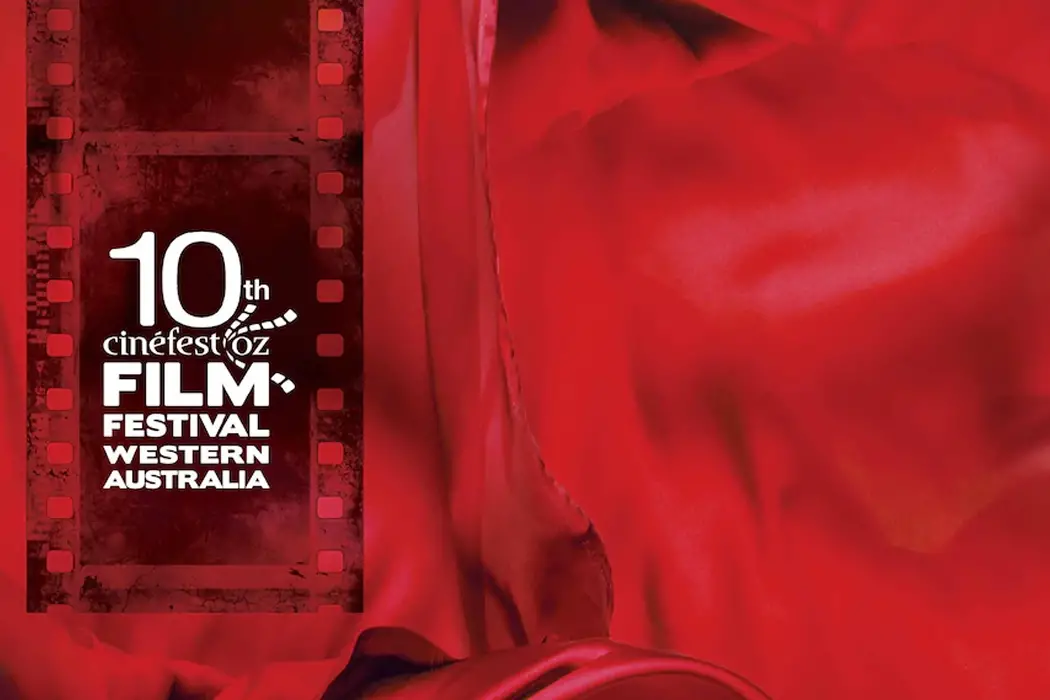
Alex is a 28 year-old West Australian who has a…
Right after spending three weeks covering the Melbourne International Film Festival, I had one night to get home, repack and continue onwards to the 10th CinefestOZ Film Festival, my first time attending the West Australian event. With a strong focus on highlighting the diverse array of upcoming Australian feature and short films, CinefestOZ was a much more relaxed experience than my hectic times at Melbourne.
After a pre-festival screening of The Dark Tower (which I would easily state is the absolute worst film of the year so far), I was able to check out some of the new titles that the Australian film industry has to offer.
Three Summers (Ben Elton)
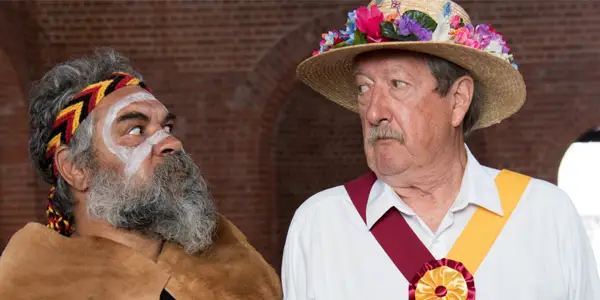
For a film that consistently preaches about breaking away from conformity and embracing other cultures, you’d really think Australia Day.
Much like Stender’s blunt attempt at examining the prevalence of racism within our seemingly accepting modern society, Elton goes for the lighter angle, giving us an incredibly diverse mixture of characters who inhabit different races, ages, genders, backgrounds and dilemmas. In an attempt to make a Robert Altman-esque comedy with a huge cast, he did the one thing that seems to be holding his own characters back: he played it way too safe.
Taking place at the (fictional) summer music festival dubbed “Westival”, Three Summers follows the journeys of the various musicians, attendees and employees of this culturally-enriched musical event, examining their paths over the titular time frame. Roland, a part-time dog washer and theremin enthusiast, bonds quickly with Keevy, a talented violinist who is being held back by her well-meaning but alcoholic father (John Waters). Alongside this, we have a recently widowed morris dancer (Michael Caton), who defiantly refuses to ignores the words of a Noongar elder (Kelton Pell) a champion of indigenous rights and national acknowledgment. Outside of these two main plot strands features a bloated mess of separated plot threads, none of which ever tie together in a significant manner.
Whilst Elton will quickly admit that this is not meant to be a deep analysis on racial divides or culture clashing, the amount of clumsy, sanctimonious statements that are constantly flown out of the heavily-rotated cast says otherwise. It feels at times that we’re not actually hearing realistic dialogue from individual characters, but rather chunks of Elton’s own discarded thoughts on Australian society. The clunky dialogue doesn’t stop at the constant ham-fisted attempts at being culturally poignant, but anytime a teenager speaks, it’s painfully obvious that an older man is behind this film’s script. The aesthetic and dialogue qualities for the younger characters always feel like outdated observations of the teenage generation of 2010, a particular year where all the film’s soundtrack choices seemed to be sourced from as well.
To highlight the film’s misunderstanding of contemporary kids and their updated instruments of communications, I wanted to point out a huge flaw that severely damages one of the film’s major plot points. One of our major protagonists is Keevy, played by Rebecca Breeds. One of her main character traits is her aversion to current technology, sticking to live music and CD’s, rather than embracing the advancements of online distribution. As part of her initial meet-cute with music-wiz Roland (Robert Sheehan), she explains her lack of personal email address, an important detail that becomes a crucial point in the third act. But half-way through the movie, Keevy is seen using Tinder, even talking about it with a sense of familiarity to Roland. Anyone with the knowledge of Tinder would realise that it requires a Facebook page, which in itself needs a personal email address to create. The lack of little details like this really exhibit the sense of disconnection with the target audience who actually would appreciate these types of references.
Unlike the works of Christopher Guest, Three Summers is just simply unable to navigate between all of its characters in a satisfying manner, with none of them really standing out. As all these storylines are being progressed by three annual increments within a 95 minute runtime, everything feels so ridiculously rushed. Outside of the predictably bland central romance, every other subplot contains a heavily-pointed political statement, each so transparent in nature that it usually takes the character in question to literally spell out what Elton is trying to say with them. A real strong edit in the pre-production stage could’ve easily elevated these problems, taking out the redundant characters in favour for actually giving the significant ones room to breathe and expand. Breezy, inoffensive but ultimately disposable, Three Summers is simply weightless – a film without the gravity or density to have any form of impact.
OtherLife (Ben C. Lucas)
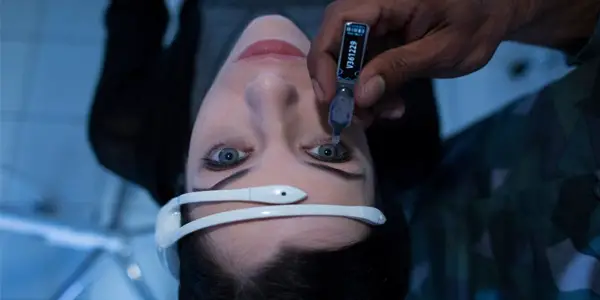
Recently, I’ve been working on a web-series detailing my discomfort with the current trend of large-scale Australian films, with a disturbing trend of new pictures focusing on their cultural content and what they bring on a social level, rather than great, unique stories and developed characters. With main funding bodies ignoring the importance of genre cinema, the Australian indie landscape has decided to pick up this slack.
Now with the old-school spirit of the Ozploitation movement being transformed into the micro-budget Australian genre movie scene, we’re currently witnessing a generation of filmmakers who are using crowdfunding and personally-raised finances to keep genre cinema alive. Our best sci-fi, action and horror movies are emerging from these sources, which holds true with Ben C. Lucas’ OtherLife, a solid slice of sci-fi that proudly continues this growing trend.
Ren Amari (Jessica De Gouw, dressed in the most cliche computer programmer outfit) is the original inventor of OtherLife, an upcoming pharmaceutical company that supplies the titular drug, an eyedrop filled with nanobots that can mentally take you anywhere you want. Got a minute to kill before work? Now you can spend an hour snowboarding! Whilst Amari wants to use this technology to help revolutionise the medical industry, her sinister partner Sam (T.J. Power) is much more financially driven, quick to jump at the opportunity to receive funding from the government, in exchange for using the drugs on prisoners.
Just before the company’s launch, one of Amari’s experimental tests is accidentally used by her boyfriend Danny (Thomas Cocquerel), leading to his untimely death. In order to save the company and prolonged jail time for murder, Amari is forced to become the first volunteer for the government’s use of OtherLife as a prison for criminals, trapping her inside her own mind for a complete year (despite it only being a minute in real time). What starts off as a claustrophobic nightmare, descends into a much larger series of revelations, one which sees Amari having to confront all the problems in her life she’s tried to avoid.
Lucas and the other production heads have a clear understanding of their restricted budget, delivering an engaging story which never gets too ambitious or overly complicated for its own good. The trippy visuals, including some kaleidoscopic montages mixed with select first point of view scenes, really help elevate the aesthetics, diverting the usual low-budget sci-fi tropes of empty warehouses, suburban homes and cheap green screens. OtherLife would sit comfortably within the Black Mirror universe, a well-built and well-acted genre picture that helps corrupt the idea of the typical Australian film.
Jungle (Greg McLean)
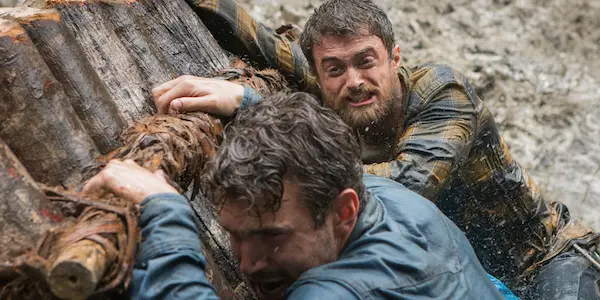
Greg McLean, one of the main pioneers of Australia’s revitalised interest in genre cinema, has built a strong filmography based on the common theme of survival. Despite Wolf Creek 1 & 2 cementing Mick Taylor as a modern-day horror icon, both tales told seperate stories of lost men trying to live through his torturous ordeals. Rogue saw a group of tourists battling against a giant crocodile, The Darkness was a traditional story of a desperate family against the supernatural and most recently, The Belko Experiment, saw office workers simply trying to survive one bloody day at work. With his latest picture, the gruelling biopic Jungle, sees our misguided travellers trying to survive against an invisible force – the unrelenting power of Mother Nature.
Based on the bestselling memoir by Yossi Ghinsberg, Jungle focuses on Ghinsberg (Daniel Radcliffe), an Israeli backpacker who has rejected a regular life in Tel Aviv in order to wander the Earth, a decision that sees him in Bolivia with other like minded travellers. He quickly bonds with Swiss teacher Marcus (Joel Jackson) and steadfast American Kevin (Alex Russell), who all plan to leave Bolivia together. Just before their departure, Ghinsberg is targeted by the mysterious Karl (Thomas Kretschmann), who promises Ghinsberg and his friends an untapped wealth of gold, one which lies in the heart of the Bolivian jungle. Initially reluctant, the guys decide to team up purely for the experience, a decision that sees them mentally and physically fall apart, as they face a series of predators, dangerous rapids, bodily injuries and the early start to the dreaded ‘rain season’.
When the cast is slowly reduced to the singular Ghinsberg, as he fights to stay alive, is when Daniel Radcliffe’s dedicated performance really gets a chance to impress. It is also at this point when the movie hits its biggest obstacle, which is its dedication towards recreating the most traumatic moments of Ghinsberg’s legendary survival. His distressing experience descends into an episodic set of gross-out moments that makes you shocked that a man actually had to go through this.
McLean is at his best when left to play with these gut-wrenching moments, short effective sequences such as Ghinsberg cutting a living worm out of his forehead and eating an unborn bird out of its egg. These segments highlight McLean’s talent of displaying violence that’s genuinely shocking (as demonstrated in the first Wolf Creek), in a world where audiences have become so desensitised to cinematic bloodshed. It’s the scenes outside of this, the constant aerial shots and the need to prolong Ghinsberg’s suffering for the sake of keeping the narrative as truthful as possible, is where the film starts to falter.
The practical effects and shooting locations (no blue screens here folks) really help sell the tactile authenticity, with sound effects really maximising the transporting nature of the oppressive environment that McLean leaves us in. A tighter edit would’ve really helped benefit the film in a big way, magnifying the great moments and eclipsing the laggy nature that currently damages the overall enjoyment of watching this rain-soaked nightmare.
The Butterfly Tree (Priscilla Cameron)

Back in 2005, film critic Nathan Rabin coined the term “Manic Pixie Dream Girl”, an expression to highlight the increasing trend of one-dimensional female characters that became a common trope of the drama genre. Basically, it’s a female person of absurd perfection who purely exists to prop up/assist the main male character with his own personal problems. Evelyn, the instigator of Pricilla Cameron’s The Butterfly Tree, is the closest answer to the 2017 interpretation of this heavily-referenced trope, an impeccably sublime individual who only exists in the story to help out a couple of grieving men.
Evelyn (Melissa George), an ex-burlesque dancer turned florist, takes over the flower shop of a small Australian town. Her enthusiastic nature and 1940’s retro wardrobe immediately grabs the attention of two separate men – Al (Ewen Leslie) and Fin (Ed Oxenbould), who, as Evelyn quickly realises, are father and son. When Al and Fin’s own attempts to woo the optimistic storekeeper result in the realisation that they’re chasing the same woman, a battle of hearts and minds is triggered, a mental campaign fuelled by the unresolved truths left by the death of Fin’s mother.
Outside of the questionable CGI butterflies that dominate the frequent dream sequences (forgivable given the movie’s budget), the film is quite the marvel to look at. It’s refreshing to see a film unashamedly embrace primary colours in its cinematography, juxtapositioning some real vivid imagery with its dark narrative. The unconventional soundtrack choices implemented inject some personality in the quirky scenery that our trio of characters inhibit, and the compact amount of characters are all well-acted. The major detriment is its script and the plot choices it decides to explore, a series of questionable decisions that diminishes genuine issues in favour for being bewildered by its own colourful visuals.
Evelyn purely exists as a plot mechanic to give the two grieving men something tangible to hang their emotional baggage upon, using her as a ping pong ball in their proverbial game of table tennis. In order to avoid the tag of Manic Pixie Dream Girl, Evelyn has been given some character traits – she has breast cancer, she has an ex-husband with a restraining order and she’s an ex-burlesque dancer. It’s a shame that none of this actually matters, with none of these elements expanded or explored to actually flesh her out as a real person. Instead they’re just loose parts used to the script’s convenience, dispensed whenever Cameron wants to push her story a certain way. Evelyn’s breast cancer does become a major part of the third act denouement, but her experience and painful time is pushed to the side, relegated to a sad montage that intermingles her suffering with the perils of a horny child. This also brings me to the other matter that really raised my hackles – the character of Fin.
Fin is introduced as a child of whimsy, reacting to the radiant world of nature with awe and curiosity, scenes which suggest a sense of intelligence and genuine affection. This is not the case. As the story slowly unfolds and we see what he’s willing to do to win Evelyn’s heart, we see this young adult perform the following – multiple counts of stalking, stealing naked photographs, watching Evelyn bathe without her knowledge, sleeping in her car, threatening to kill his father, destroying his father’s property and his job (even though the film goes out of its way to tell you that he is broke, another plot detail that goes ignored) and other infuriating acts. Whilst the film attempts to justify these actions under the simple guise of “he’s grieving” (which was better examined in Louder Than Bombs), he’s simply too obnoxious and actually nasty that he crosses the line of being forgivably disturbed and into the territory of being totally deplorable.
Rabbit (Luke Shanahan)
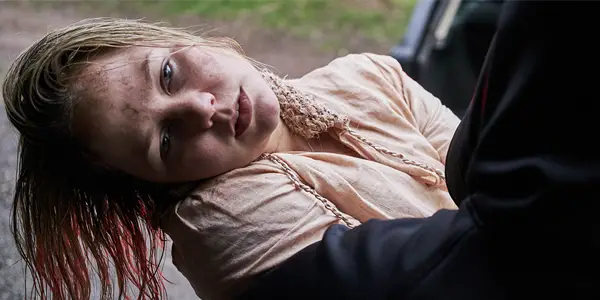
It was at the one hour mark into Luke Shanahan’s debut feature that I had the stunning realisation that I had absolutely stopped caring. Despite an incredibly arresting opening, gripping you with an immediate burst of operatic music, striking title cards and some inspired horror visuals, Rabbit promises a lot more than it actually ends up delivering. What starts off as determined sprint slowly crawls to a simple stroll, as the cryptic story is used as a framework to display a gallery of the director’s visual and narrative influences, a mixture of European arthouse aesthetics and David Lynch-esque sense of plot ambiguity. It’s unfortunate that the movie drops off so quickly, as the technical aspects and the way that some of individual scenes are constructed do show potential, but the script’s need to be one step ahead of its audience at all times gets tiring fast, especially when none of the uncovered revelations are ever intriguing enough to make the journey feel worth it.
After an alarming fainting spell in Germany, medical student Maude is sent back to her hometown of Adelaide, Australia, a place she’s avoided ever since the disappearance of her twin sister a year earlier. Plagued with troubling nightmares involving her missing sister Cleo, Maude is determined to track her down, gaining the help of Cleo’s fiance Ralph (Alex Russell) and Henry (Jonny Pasvolsky), the cop originally assigned to the missing persons case. Maude’s dreams take them to a secluded caravan community, a collection of eclectic people who might hold the key to Cleo’s location and the reasons behind why she was taken at all.
Breaking down the ingredients behind this film’s inception would give you a murderer’s row of essential arthouse and horror films, with titles such as The Witch, The Lobster, Martyrs and Melancholia just to name a few. Rabbit’s use of cinematic language that has been clearly inspired by these types of movies are its strongest asset. With this type of psychological thriller, the two major ways of maintaining suspense and interest can be strategically doling out exposition to your audience at key moments to string them along, or operating on a dream-like ambiguity, a plot driven by atmosphere and mood rather than a strict narrative. This film attempts both, which bogs itself down in the need to uncover an intricate puzzle but also spend time in its established off-kilter world.
Much like OtherLife, I’ll always respect an Australian-made movie that actively tries to subvert and avoid the typical tropes of the “Australiana” film, existing as a new slice of genre cinema that is accessible to audiences worldwide. This lacks the mainstream audience appeal of the standard genre film, due to its unsettling nature and puzzling plot, but amongst horror fans, I definitely see this spreading to other parts of the world, achieving some success at the huge amount of international genre festivals that exist at the moment.
Madame
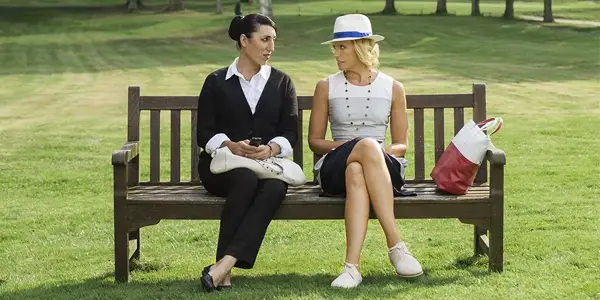
My CinefestOZ experience came to a real bummer ending, thanks to Amanda Sthers’ cruel and incredibly unsatisfying romantic comedy Madame, something that I’d rank as easily one of the worst pieces of film I’ve seen all year. Madame presents quite a dilemma in terms of expectations – the initial premise suggests a plot that has been done a thousand times, the basic Cinderella story. The person with the heart of gold is rewarded with the love of another, somebody who has the ability to assist them with their current problems.
If Madame purely presented this story to me, with all its predictable story beats and associated tropes in tow, I would probably find myself criticising it for being generic and simply ticking the necessary boxes. Instead it chooses to subvert these ideas and use this framework to tell a different story, which is a novel idea, especially in a genre that’s incredibly concentrated with derivatives and repetitive trash. So what went wrong? I’ll put it simply: This film completely forgot who its target audience was.
Anne (Toni Collette) and Bob (Harvey Keitel) are a rich American couple who strongly ignore how miserable their marriage currently is, living in a mansion in France in an attempt to spice things up. When the couple decide to host a dinner party for an assortment of international friends, they are shocked by the arrival of their struggling author son, who completely throws Anne’s particular arrangement off. A petty perfectionist, Anne simply cannot have 13 people at her table due to its bad luck stigma, so in an improvised plan, she invites her head maid Maria (Rossy De Palma) to be the 14th chair. Maria’s quirky but fun-loving nature catches the eye of an art broker (Michael Smiley), which triggers a romantic relationship between the two that slowly drives the jealous Anne insane.
Outside of the performances by Rossy De Palma, Michael Smiley and a couple of funny one-liners, this movie is border-line broken, feeling just as unfinished as Josh Trank’s Fantastic Four disaster. The character of Anne is so ridiculously unlikeable and mean, that any sense of realism or relatability are quickly diminished. The audience is forced to witness Anne treat the only likeable character (Maria) with such extreme unjustified hatred to the point that it actually feels genuinely uncomfortable. I guess this is the feeling that most people have when they watch the torture sequences in the Saw franchise.
A proficient amount of useless subplots don’t help things either, a messy mixture of crude story threads that add nothing to the central narrative, with none given any form of ending or plot significance at all. They aren’t narratively, thematically or even tonally linked, it’s a complete car crash of impotent dramatics. The target audience who would normally eat this stuff up, might smirk at some of the sly lines, but will also feel cheated by the film’s lack of third act, a calculated decision that simply does not work. Even the usual reliable talents of Keitel and Collette don’t help either, who both feel miscast in their horribly detailed caricatures. Avoid at all costs.
Does content like this matter to you?
Become a Member and support film journalism. Unlock access to all of Film Inquiry`s great articles. Join a community of like-minded readers who are passionate about cinema - get access to our private members Network, give back to independent filmmakers, and more.













